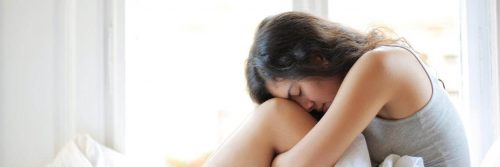As the seasons change, in many ways, our lives do too. It’s not just the weather outside and the amount of daylight we are exposed too (if you live in Europe or have seasonal change where you live) — other things like our social lives tend to change with the seasons, having a knock-on effect on our sleep patterns.
I remember back when I lived in Hungary, we had four very separate seasons. Looking back, I can tell that certain times of the year I was sleeping better than others.
Here are some of the ways that the seasons can affect your sleep for better or worse, and what you might want to consider to ensure better sleep for yourself and therefore more energy in your daytimes.
Temperature
The first thing to think about is adjusting your bed covers. Add or remove layers, or swap out your duvet for a thicker or thinner one, so that you’re not sweating in hot weather, or shivering in the colder seasons.
Eating and drinking
During the winter you might find you crave more food. It’s typical when we are colder, as you burn more energy to keep your body warm.
Keep in mind that eating a heavier meal in the evening can disturb your sleep if you’re eating late. And also consider the caffeine content of those hot drinks that are so appealing in the winter months.
Social life
The changes in our eating and drinking link nicely with the changes in our social activities. Summer is full of fun, outdoor social activities. Barbeques and picnics in the park, for example. This tends to be a time of year when we also drink more alcohol.
While having a few drinks tends to make us fall asleep faster, it’s bad for keeping us asleep through the night, and that’s worth bearing in mind.
Light exposure
This is one of the main ways we are impacted by the changing seasons, depending on the country that you live in. For most of Europe, where light exposure varies, we are impacted negatively by the shorter days of winter.
We do tend to put very high expectations on ourselves, including that we should be in ‘peak performance mode’ all the time.
We need to allow ourselves to adjust to the seasons. Consider that it is natural for us to feel tired earlier when it’s dark earlier.
Air quality
Think about hay fever in the spring, and how that affects the sufferer’s sleep. Medication such as antihistamines affect sleep too — and this is a great example of when you should be more patient with yourself.
Prepare ahead, and give yourself time to adjust.
Nature
It might surprise you as it did me — but even in a big city, nature and the seasons affects sleep.
For example, where I live in London, the foxes mating season can wake me up more than once during a night. Foxes make some really loud screaming noises, and when I first lived here this caught me out.
These days, being woken by a fox might still happen, but it doesn’t ruin my whole night’s sleep. These days I laugh about it and then go back to sleep.
Does the local wildlife wake you up in a particular season? How about the air quality or your exposure to light? Do leave me a comment.








